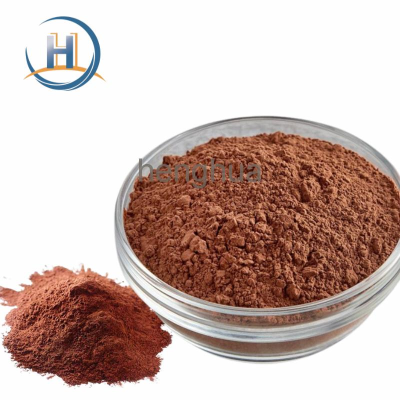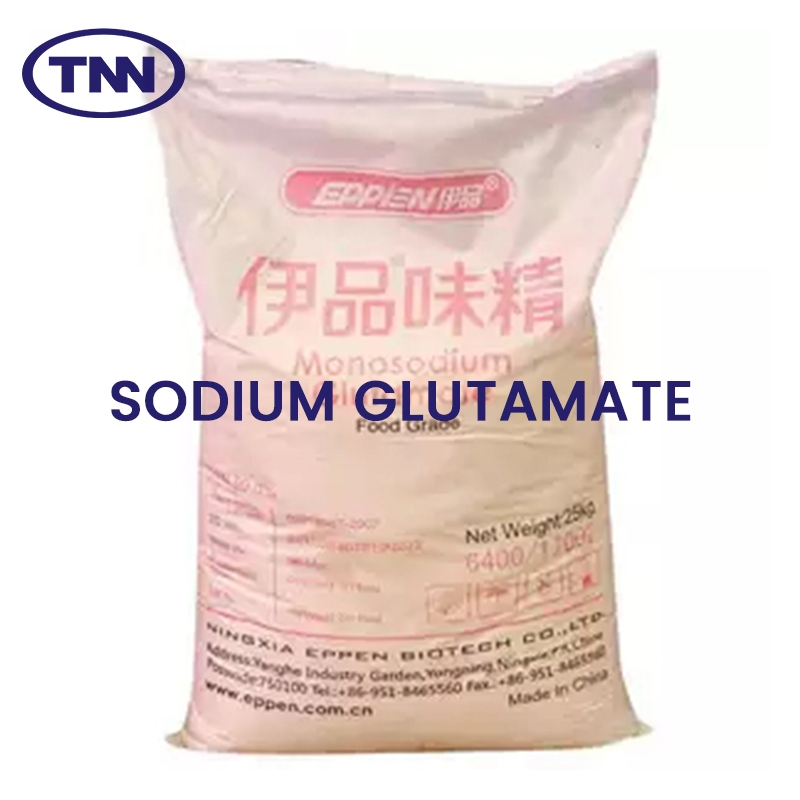-
Categories
-
Pharmaceutical Intermediates
-
Active Pharmaceutical Ingredients
-
Food Additives
- Industrial Coatings
- Agrochemicals
- Dyes and Pigments
- Surfactant
- Flavors and Fragrances
- Chemical Reagents
- Catalyst and Auxiliary
- Natural Products
- Inorganic Chemistry
-
Organic Chemistry
-
Biochemical Engineering
- Analytical Chemistry
-
Cosmetic Ingredient
- Water Treatment Chemical
-
Pharmaceutical Intermediates
Promotion
ECHEMI Mall
Wholesale
Weekly Price
Exhibition
News
-
Trade Service
The intake of oil and salt of Chinese residents remains high, and the intake of sugar continues to rise, which has become a key factor influencing the occurrence of obesity and chronic diseases in China
.
And one of the important sources of salt, oil, and sugar that we consume daily is the family kitchen
.
However, in recent years, people have mentioned " reduction of salt , oil, and sugar", but they have focused their attention on pre-packaged foods and beverages , ignoring kitchens and restaurants that are inseparable from three meals a day
.
.
And one of the important sources of salt, oil, and sugar that we consume daily is the family kitchen
.
However, in recent years, people have mentioned " reduction of salt , oil, and sugar", but they have focused their attention on pre-packaged foods and beverages , ignoring kitchens and restaurants that are inseparable from three meals a day
.
Kexin Food and Health Information Exchange Center launched a special survey in ten cities and found that the following problems are common in family cooking
.
.
Problem 1: Cooking is easy to "heavy taste"
.
.
The survey results show that the most commonly used cooking methods in family kitchens are "stir-fry, stir-fry", "stewed, braised, stew", "simmer, stew, and soup"
.
These cooking methods may mean using more salt, oil, and sugar
.
.
These cooking methods may mean using more salt, oil, and sugar
.
Women prefer "simmering and boiling soup"
.
However, it should be noted that this cooking method may use more salt instead, and it will also cause excessive oil intake due to the slick oil in the soup
.
.
However, it should be noted that this cooking method may use more salt instead, and it will also cause excessive oil intake due to the slick oil in the soup
.
In addition, 17.
18% of consumers' most commonly used cooking methods are "frying and frying", which can easily consume too much fat and increase the risk of overweight and obesity
.
18% of consumers' most commonly used cooking methods are "frying and frying", which can easily consume too much fat and increase the risk of overweight and obesity
.
Chen Junshi, an academician of the Chinese Academy of Engineering, suggested that cooking methods such as steaming, boiling, boiled and cold dressing should be used instead of frying
.
If cooking methods such as stir-frying and stir-frying are used, the taste should be light, and the amount of salt, oil, and sugar should be reduced
.
.
If cooking methods such as stir-frying and stir-frying are used, the taste should be light, and the amount of salt, oil, and sugar should be reduced
.
Problem 2: Eat pickles and sauces too often
.
.
Pickles and sauces are one of the common sources of "invisible salt" in the family, and surveys show that more than 20% of consumers often or even daily accompany their meals
.
.
Cross-analysis shows that the residents of Beijing, Chongqing, and Hangzhou who like pickles and sauces are the residents of Beijing, Chongqing, and Hangzhou; the residents of Xi'an and Shenzhen who don't like these high-salt foods the most
.
.
Ding Gangqiang, director of the Institute of Nutrition and Health of the Chinese Center for Disease Control and Prevention, pointed out that pickles and sauces contain high sodium content.
When choosing such foods, one should consciously control the total salt intake and reduce the use or use of salt in other dishes.
Low-sodium salt, reduced-salt soy sauce and other products
.
When choosing such foods, one should consciously control the total salt intake and reduce the use or use of salt in other dishes.
Low-sodium salt, reduced-salt soy sauce and other products
.
Problem 3: Some households use sugar for seasoning frequently
.
.
The survey shows that 54.
92% of households use sugar for cooking
.
92% of households use sugar for cooking
.
Shanghai consumers are the most addicted to sweetness.
68.
53% of Shanghai households use sugar for cooking, and 34.
53% of Shanghai households use sugar more frequently
.
68.
53% of Shanghai households use sugar for cooking, and 34.
53% of Shanghai households use sugar more frequently
.
12.
82% of consumers start to use sweeteners such as xylitol in the cooking process, and most of these families come from first-tier cities such as Beijing, Shanghai, and Guangzhou
.
82% of consumers start to use sweeteners such as xylitol in the cooking process, and most of these families come from first-tier cities such as Beijing, Shanghai, and Guangzhou
.
Liu Ailing, director of the Nutrition and Health Education Office of the Nutrition and Health Institute of the Chinese Center for Disease Control and Prevention, believes that traditional dishes such as sweet and sour pork ribs, braised pork, candied sweet potatoes, and pot-wrapped meat contain a lot of sugar and should not be consumed frequently;
Add little or no sugar when cooking, cooking, porridge or soy milk;
Appropriately add sweet fruits when cooking dishes to replace the use of sugar;
Eat less sugary sauces such as tomato sauce, salad dressing, sweet pasta sauce, jam, etc.
, which are common sources of "invisible sugar" in the kitchen;
, which are common sources of "invisible sugar" in the kitchen;
For those who need to reduce sugar, sweeteners such as xylitol can be used instead of sugar when cooking
.
.
Problem 4: The awareness of oil control is not strong
.
.
The survey shows that nearly 60% of households use animal oil in cooking, and that in Guangzhou and Sichuan-Chongqing areas, household cooking uses animal oil more frequently
.
Only 30% of families use oil-limited cans to help control oil
.
.
Only 30% of families use oil-limited cans to help control oil
.
Li Ning, director of the National Food Safety Risk Assessment Center, believes that a graduated oil-limiting pot can help people understand the amount of oil used in daily cooking.
It is recommended that residents plan the amount of oil reasonably based on the number and frequency of eating at home;
It is recommended that residents plan the amount of oil reasonably based on the number and frequency of eating at home;
Animal oils contain more saturated fats.
Excessive intake is not good for your health.
It is recommended to choose soybean oil, rapeseed oil, peanut oil, salad oil and other vegetable oils for cooking
.
Excessive intake is not good for your health.
It is recommended to choose soybean oil, rapeseed oil, peanut oil, salad oil and other vegetable oils for cooking
.
Not only "I know", it should be "I do"
.
.
Zhong Kai, director of Kexin Food and Health Information Exchange Center, believes that reasonable diet and "three scientific reductions" are the basis for ensuring health and are also related to the overall nutrition and health of thousands of households and residents
.
At present, Chinese consumers are paying more and more attention to dietary health, but they still lack the scientific guidance of "three reductions in science"
.
Therefore, it is suggested that under the guidance of the government, all sectors of society should act together to fully mobilize the forces of scientists, enterprises and industries to strengthen the promotion and guidance of the "three scientific reductions", promote consumers to pay more attention to nutrition and health, and enterprises to actively upgrade product health.
When formulating health policies related to the "three reductions" in the future, family kitchens will be the center, so that the "three reductions of science" can truly enter every family kitchen, so as to better promote the healthy China action
.
.
At present, Chinese consumers are paying more and more attention to dietary health, but they still lack the scientific guidance of "three reductions in science"
.
Therefore, it is suggested that under the guidance of the government, all sectors of society should act together to fully mobilize the forces of scientists, enterprises and industries to strengthen the promotion and guidance of the "three scientific reductions", promote consumers to pay more attention to nutrition and health, and enterprises to actively upgrade product health.
When formulating health policies related to the "three reductions" in the future, family kitchens will be the center, so that the "three reductions of science" can truly enter every family kitchen, so as to better promote the healthy China action
.







